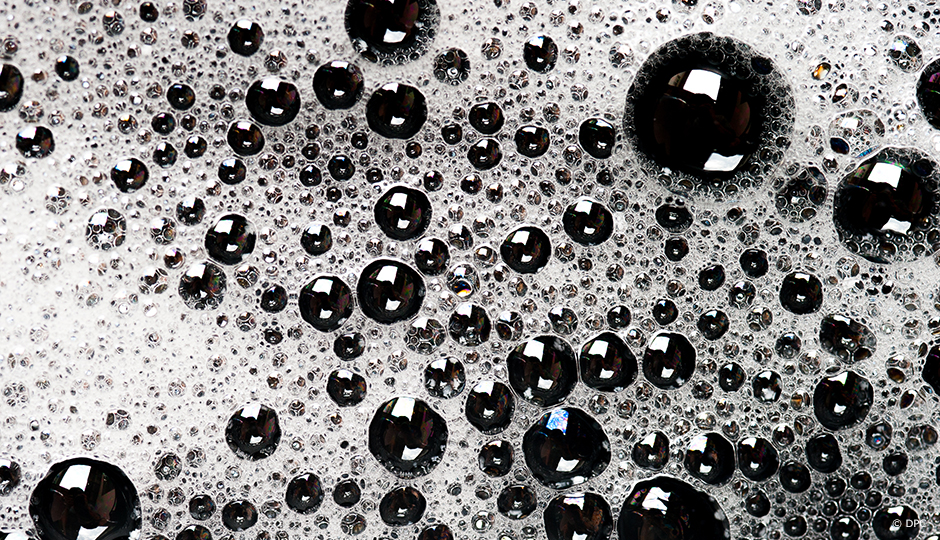Microorganisms are the key to healthier cleaning products, affirms Louis Tessier, a biotechnology professor at Collège Shawinigan and a researcher at the college's technology transfer centre, Centre national en électrochimie et en technologies environnementales. His mission is to get Québec companies to replace the chemical compounds they use in their cleaning products by an environmentally friendly solution containing bacteria and yeast.
A number of companies have expressed an interest in acquiring this bioprocess, which appears to be both productive and affordable.
Most soaps and detergents contain an active ingredient that makes them foam and has the ability to remove dirt. Being petroleum-based, these chemical compounds or "surface active agents", also known as surfactants, are not readily biodegradable and are potentially toxic. Many companies would like to replace chemical surfactants in order to offer certified environmental options to consumers. Louis Tessier is working with industry to develop the large-scale production of biosurfactants whose detergent potential has been proven through basic research.
In the laboratory, the microbiologist pampers microorganisms in a bioreactor to get them to multiply. He then suddenly changes the conditions of the culture: this pushes the microorganisms to produce defense molecules, including surfactants. Using a nanofiltration process, the researcher is able to harvest and concentrate these molecules. The result is a biosurfactant made by bacteria and yeast. These non-toxic, digestible compounds degrade by 95% after 14 days, and provide 100 to 1,000 times the cleaning power than the same amount of chemical surfactant!
A number of companies have expressed an interest in acquiring this bioprocess, which appears to be both productive and affordable. According to Louis Tessier, the production cost of biosurfactants is not quite as competitive as that of their chemical counterparts, but we're almost there!




